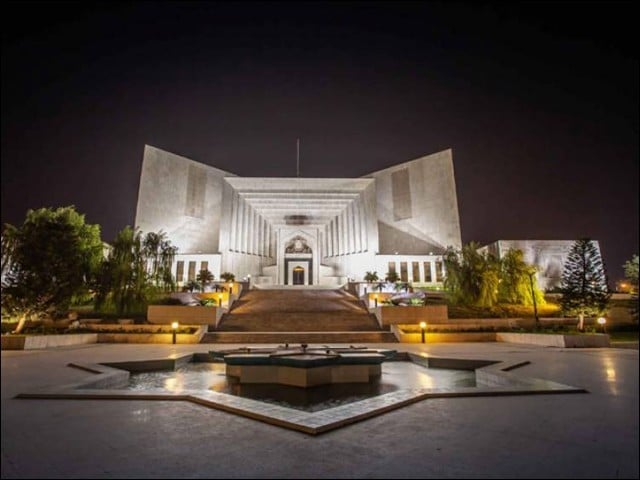SC quashes FIR against news channel director
Media cannot perform its functions freely in such a hostile atmosphere, says judgment authored by Justice Mandokhail

The Supreme Court on Tuesday ruled to quash an FIR filed against the news director of a private media channel in connection with a sedition case involving former Prime Minister's aide, Shahbaz Gill. Gill was accused of inciting rebellion within state institutions.
The petitioner, Ammad Yousaf, was implicated in the case due to his role as the director and the airing of an interview, which was seen as conspiratorial with the main accused.
The verdict, authored by Justice Jamal Khan Mandokhail, held that in order to protect and promote such rights, the state must exercise its power and authority in accordance with the Constitution of Pakistan.
"Print and electronic media are the means of receiving and providing such information to and from the people. We have observed that upon exercise of such right, politically motivated FIRs are being registered for offences mentioned in Section 196 of the Code, mostly against politicians, political workers, media persons, and human rights activists, and in some cases against their family members as well.
"It is hard to believe that the chosen representatives of the people, political activists, rights activists and media persons can indulge themselves in anti-state activities. The act of indulging its citizens in malicious and frivolous prosecution by the Government without any substance on the plea that the thoughts are anti-state, amounts to undermining the constitutional command and as such, depriving citizens from their fundamental rights of freedom of movement, assembly, speech, and right to information.
Read Journalist Khalid Jamil held for spreading 'anti-state narrative'
"Such misuse of authority creates a sense of fear and insecurity in the society, which results into hatred against the State's institutions. When citizens are put in fear, they cannot perform their functions freely, which amounts to preventing them from contributing towards the society in accordance with the Constitution, law and as per their conscience.
"In such a hostile atmosphere, the media cannot also perform its functions freely, rather it will undermine the freedom of speech, expression, and access to information of the citizens, as guaranteed by the Constitution, resulting into mistrust in the institutions. A democratic Government is considered to be by the people, of the people and for the people.
"It must, therefore, develop an atmosphere of tolerance, to promote political and social justice; to create a habit of listening to healthy criticism, which is the beauty of democracy. Thus, the Government must accept the will of the people, instead of considering its critics and political opponents as enemy of the State, to avert hatred and mistrust of citizens upon the institutions, by refraining itself from misusing the power and authority and to avoid malicious, baseless and frivolous prosecution against its citizens," noted the judgment.



















COMMENTS
Comments are moderated and generally will be posted if they are on-topic and not abusive.
For more information, please see our Comments FAQ